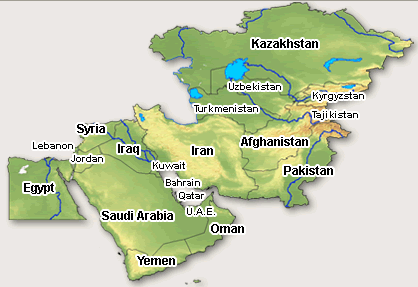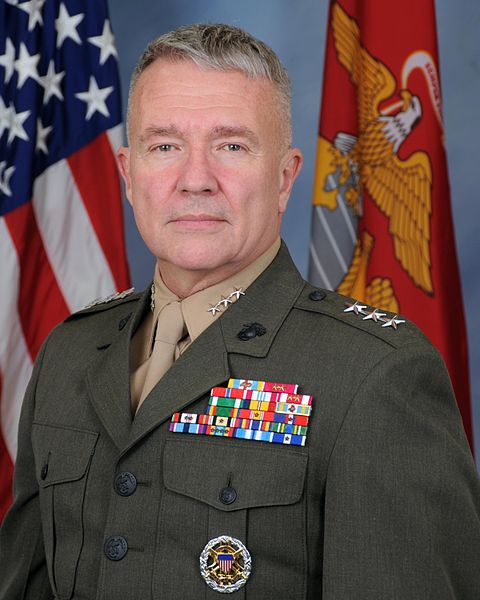December 21, 2018
Tehran’s behavior around the Middle East has not been impacted at all whether Iran was inside a nuclear deal, negotiating it or confronted with a US withdrawal, says the Marine general who is the incoming commander of the US Central Command.

“Iran’s malign behavior hasn’t abated since, before, during, or after the nuclear deal in the domains in which I see — which is their development of ballistic missiles, their activities in Syria and Yemen, and in other [Mideastern] nations,” the nominee, Marine Lt. Gen. Kenneth McKenzie Jr., told senators December 4.

In other words, he sees Iranian policy in the region as entirely separate from its handling of nuclear relations with the United States.
McKenzie was nominated to take over as commander-in-chief of the Central Command (CENTCOM) earlier this year and is likely to be confirmed by the Senate before year’s end.
At McKenzie’s Senate Armed Services Committee’s confirmation hearing, he called Iran the region’s “most significant long- and short-term threat.”
During an exchange with Republican Sen. Ted Cruz of Texas, McKenzie said US withdrawal from the nuclear deal and the reimposition of sanctions puts pressure on Tehran’s economy, but acknowledged it may be able to circumvent sanctions by working with other nations.
He said the US is watching Iran’s tests of space launch technology that could be transferred to “an ICBM [inter-continental ballistic missile] of significant range.” Iran claims that its biggest missiles have a range of 2,000 kilometers (1,250 miles), far short of ICBM range, and insists it has no program and no desire to develop a missile of greater range. Should it be found to be working on an ICBM, which could by definition reach the United States, tensions with the US would rise substantially.
McKenzie acknowledged the National Defense Strategy’s new emphasis on China and Russia — which has already reduced forces assigned to CENTCOM — has impacted the frequency of US aircraft carrier deployments in the region. “It’s going to require the command to adopt innovative techniques to deter Iran because that’s the underpinning of everything else that will go on in the theater,” he said.
If Iran were to challenge a US naval vessel in the Strait of Hormuz, for example, it might take longer for the US to respond, he said.
CENTCOM is one of six US geographic combatant commands into which the world is divided. The commander-in-chief of each command would be the US military commander in any war in his area. CENTCOM covers 20 countries of the Middle East and Central Asia running from Egypt to Kazakhstan. Defense Secretary Jim Mattis is a former CENTCOM chief.
McKenzie, a native of Birmingham, Alabama, joined the Marine Corps in 1979 after the Vietnam War. He saw combat service in both Iraq and Afghanistan. He was CENTCOM’s planning director in 2010-2012 and headed the Marine component in CENTCOM in 2014-15. In 2015, he joined the Joint Staff in the Pentagon and since July 2017 has been the director of the Joint Staff.
McKenzie will replace Joseph Votel, who is completing his four-year term at CENTCOM.
























